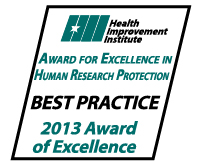These facts and figures demonstrate the need to provide lay language trial results summaries to study volunteers. CISCRP’s Communicating Trial Results program engages sponsors and investigative sites and helps to fulfill the ethical obligation of researchers to inform study volunteers about what was learned from their participation in a trial. Regulatory agencies in the United States and Europe are supportive of CISCRP’s program.
For more information on this important program or to request a custom proposal, please contact us.
Almost all patients want to know the results of their trial. A 2008 literature review found that, across 15 separate studies, a median 90% of clinical trial participants wanted to be told the results of their clinical trial. Looking across studies that assessed the psychological impact of receiving trial results, both psychological benefits and consequences were found; and, as the authors note, “the vast majority of participants reported feeling that it was important to receive study results” even if they experienced negative emotions. [Shalowitz and Miller. 2008. PLoS Medicine. 5(5):714-720.]
Almost no patients are being told their trial’s results. A 2012 CISCRP publication found, in a survey of 213 trial participants, that 96.7% wanted to know the results of their clinical trial, yet only 8.9% had been able to find out, even though technical results had been posted to ClinicalTrials.gov for over two months. [Getz et al. 2012. Expert Rev. Clin. Pharmacol. 5(2): 149-156.]
This lack of communication (and resultant lack of transparency) may prove a substantial barrier to the success of the clinical research enterprise.
- A 2009 survey found that, “Most patients (364 [91%]) wanted to be informed about research findings or else would not participate in future clinical trials (272 [68%])”. [Sood et al. 2009. Mayo Clinic Proceedings. 84(3): 243-247.]
- At the conclusion of their participation, most trial participants feel they are “no longer valued” by researchers. [Getz. The Monitor. September 2008: 17-21.]
- Unless they are deeply self-motivated to share their experiences, most study volunteers choose not to advocate clinical research among patients who are considering participation. [Getz. 2010. Appl. Clin. Trials. 19(5): 32-34.]
ClinicalTrials.gov is not intended to alleviate this problem. Results currently posted to ClinicalTrials.gov are not intended for patients or other lay audiences; rather, the expectation is only that these results would be understandable by an “educated reader of the medical literature”, as stated by the Director of ClinicalTrials.gov, Deborah Zarin. [Zarin et al. 2011. N Engl J Med. 364(9): 852-860.] The Secretary of HHS has authority to mandate lay-language results on ClinicalTrials.gov under the FDA Amendments Act of 2007 Sec. 801(J)(3)(D)(i).
Patients need lay-language to understand their trial’s results. CISCRP research found that, after independently reviewing a lay-language trial results summary, 91.2% of trial participants felt they understood the results of their trial very well or somewhat well, and the portion who understood the basic facts of their trial increased by as much as 65.6 percentage points in a pre/post evaluation. Prior to reviewing a trial results summary, however, basic facts about the trial (such as why the research had been conducted) were understood by no more than 11% of patients. [Getz et al. 2012. Expert Rev. Clin. Pharmacol. 5(2): 149-156.]
Patients also want ongoing communication. In a CISCRP survey, 86% of trial participants wanted not only to be told the results of their trial, but also to be updated regularly by mail during the often extensive period of time between their last site visit and when trial results became available. Preferred frequencies ranged from 3-month to annual update schedules. [Getz et al. 2012. Expert Rev. Clin. Pharmacol. 5(2): 149-156.]
Regulatory agencies supportive. CISCRP has updated the FDA and EMA, at their requests, on our program for communicating trial results to study volunteers, and both agencies have responded positively to the need and value of this work. In a February 2012 meeting, the FDA suggested the program was one that should be adopted industry-wide. In a November 2011 meeting, the EMA indicated the CISCRP program was doing something already required under international guidelines in the Declaration of Helsinki, and that the clinical research industry has a binding legal obligation and a strong moral one to communicate the results to individuals in trials.
CISCRP’s Communicating Trial Results Program was acknowledged as Best Practice and received the Health Improvements Institute’s 2013 Award for Excellence in Human Research Protections.

